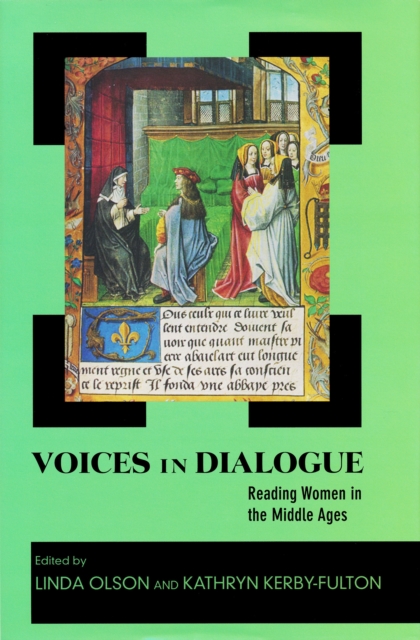
Voices in Dialogue : Reading Women in the Middle Ages PDF
Edited by Linda Olson, Kathryn Kerby-Fulton
Description
Using a dialogue format, contributors to this collection of essays outline key issues in the cultural history of medieval women.
Many of the essays in this volume provide compelling evidence that women in Late Antiquity and the Middle Ages achieved an accomplished form of literacy, and became actively involved in literary networks of textual production and exchange.
These essays also present new research on questions of the literacy and authorship of historical women.
In so doing they demonstrate that medieval women, like many medieval men, did not read and write in isolation, but were surrounded and assisted by both male and female colleagues. The issue of women's ministry is another key theme addressed in this volume.
Contributors examine the conditions under which women's spiritual leadership could extend to male-designated roles and mixed audiences.
Several essays also address the ways in which late medieval religious women, though hampered by severe official legislation, managed to appropriate to themselves a surprising range of supposedly forbidden ecclesiastical roles.
Voices in Dialogue challenges the historical and literary work of modern medieval scholars by questioning traditionally accepted evidence, methodologies, and conclusions.
It will push those engaged in the field of medieval studies to reflect upon the manner in which they conceive, write, and teach history, as it urges them to situate historical women prominently within the intellectual and spiritual culture of the Middle Ages.
Information
-
Download - Immediately Available
- Format:PDF
- Pages:10 Halftones, unspecified
- Publisher:University of Notre Dame Press
- Publication Date:31/10/2021
- Category:
- ISBN:9780268203566
Information
-
Download - Immediately Available
- Format:PDF
- Pages:10 Halftones, unspecified
- Publisher:University of Notre Dame Press
- Publication Date:31/10/2021
- Category:
- ISBN:9780268203566






